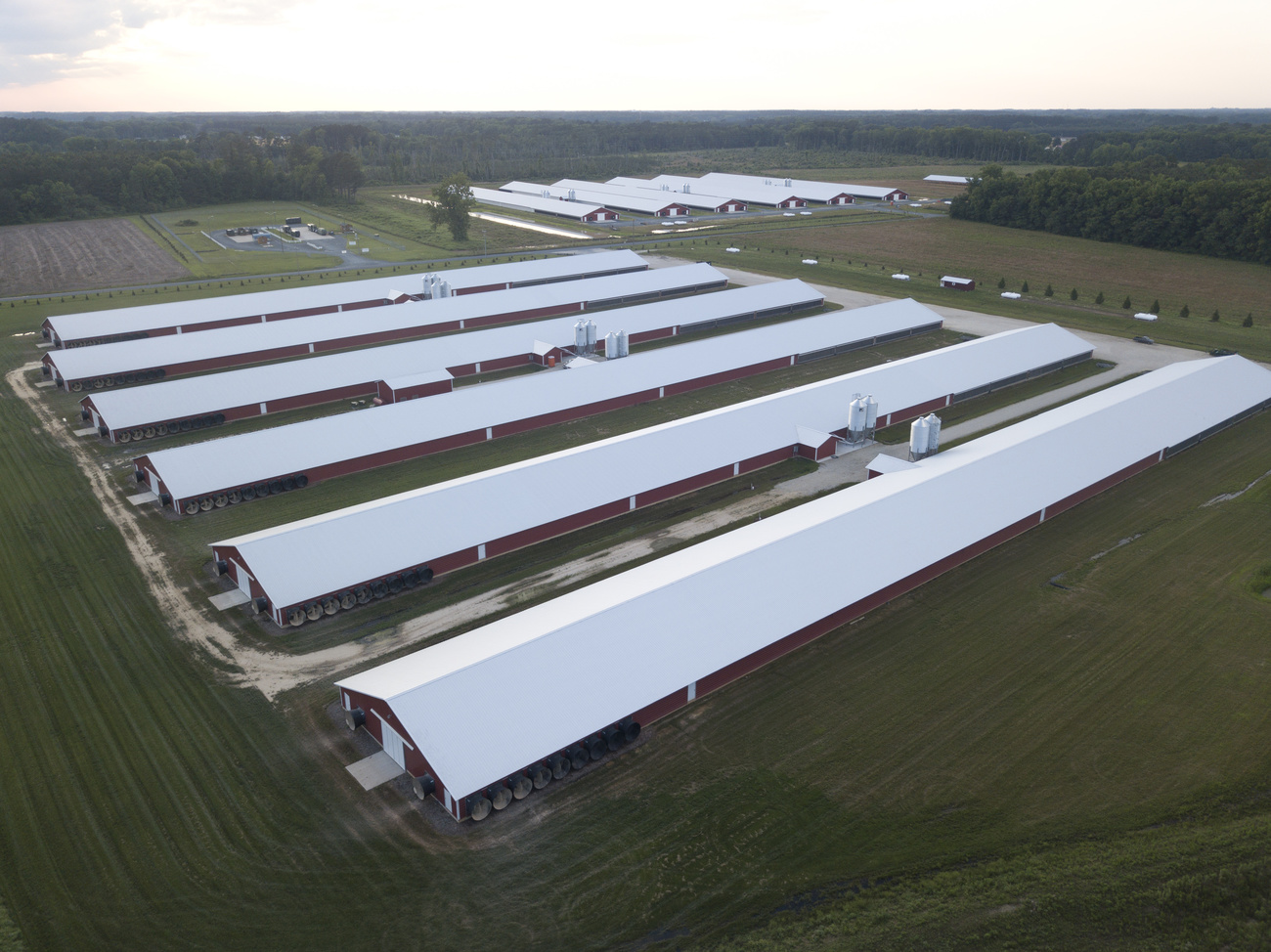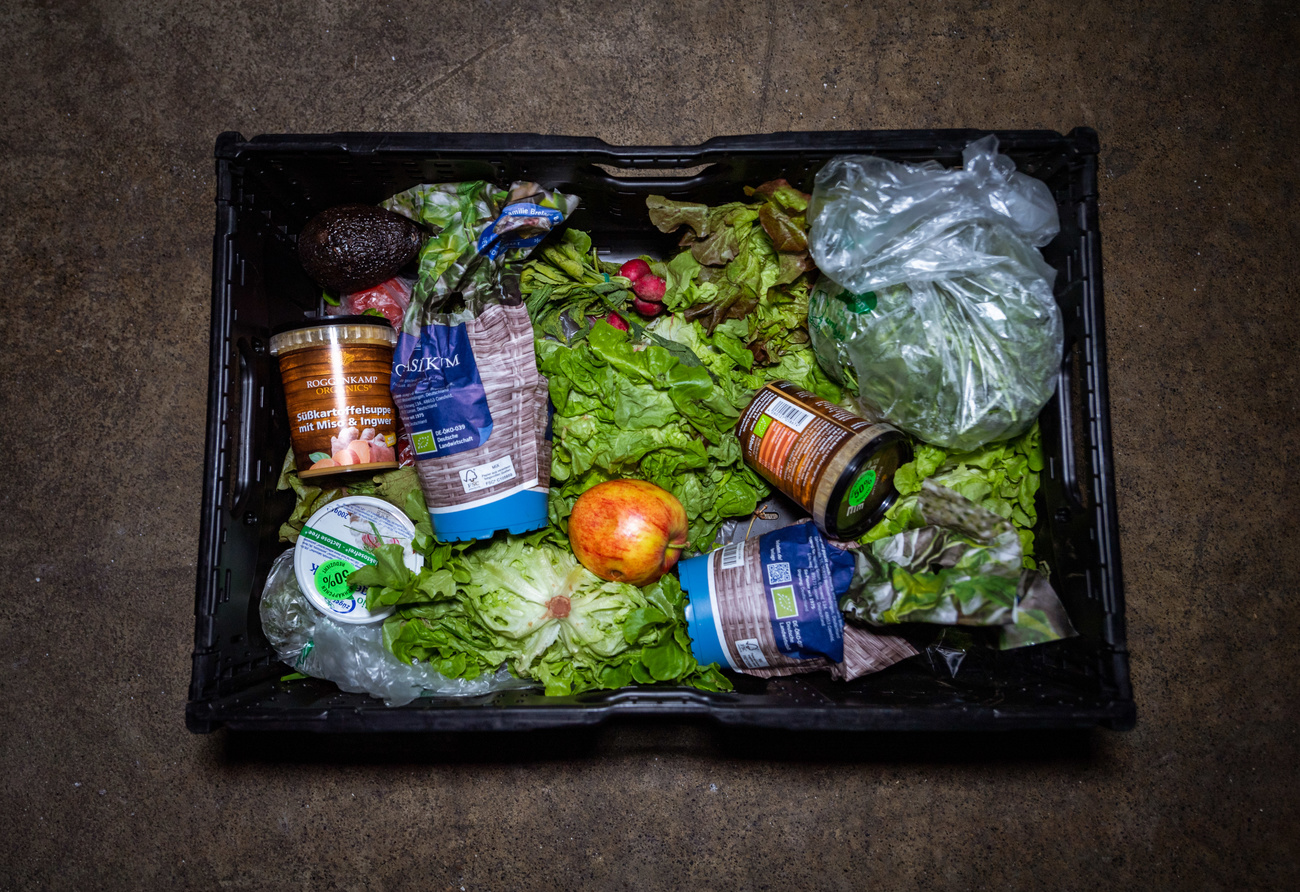Why some Swiss researchers are boycotting the UN Food Systems Summit

This week the UN is hosting a summit on how to feed a growing world population under the pressure of climate change. Two Swiss agricultural researchers explain why they are boycotting this event.
Johanna Jacobi and Stephan Rist are not in New York this week, when many different players will be meeting under the aegis of the United Nations to discuss how to overcome world hunger.
This is not because they don’t support the goal. But they are critical of how the summit is being organised and have decided – together with over 200 scientists from around the world, as well as trade unions, former UN Special Rapporteurs and NGOs – to boycott the meeting.
The UN Food Systems Summit, being held during the UN General Assembly in New York on September 23, is intended to advance global food systems transformation to achieve the Sustainable Development Goals by 2030.
Instead, they will be taking part in a “counter summit”. Its sloganExternal link, “Farmers, not corporations, feed the world”, puts the contention in a nutshell: it’s about the conflict between agribusiness on the one hand and small-scale producers, the civil society supporting them and agroecological science on the other.

Will corporations dominate the summit?
“The power relations at the summit have long since been set,” says Jacobi, an environmental scientist and professor of agroecological transitions at the Swiss federal institute of technology ETH Zurich. “Family-run and smallholder farms – which produce over half of all food on less than 30% of the world’s agricultural land – are not properly represented.”
Small producers are facing cut-throat competition for land, water and market access from corporations and large landowners, who control 70% of global agricultural land but only produce up to 40% of the food, as Jacobi outlines.
“And it is precisely these big players’ representatives that are leading the world food summit,” according to the scientist, who does not believe that the meeting will make food systems any more sustainable, ecological or fair.
‘Put forward a clear alternative’
Rist, a professor of human geography and critical sustainability research at the University of Bern, also cites ecological and social reasons for boycotting the summit. As he explains, the organisers are pursuing strategies and approaches that will not solve the main problems underlying today’s food systems, but will actually exacerbate them.
For the past six years, Rist has headed an international research project on nutritional sustainability. This has found that smallholder and family-run farms, in contrast to monocultures from large-scale plantations, grow food in a manner that is very close to the principles of agroecology.
“Their main problem is not that they don’t know how to produce food ecologically and sustainably, but that the extra work involved is not fairly remunerated by the markets,” says Rist.
“The agro-industrial focus also overlooks the fact that the globally organised large companies and corporations are primarily responsible for the bulk of food waste,” Rist adds. It is important, he believes, to put forward a clear alternative, namely agroecology as a practice, a social movement and a science.

The WEF as stumbling block
The researchers take particular exception to Agnes Kalibata, who is leading the UN summit and is an agenda contributor to the World Economic Forum. She was for many years also president of the Alliance for a Green Revolution in Africa (AGRA), an African-run organisation that aims to turn smallholder agriculture in Africa into a thriving digital agro-industrial business.
This all sounds rather positive. However, as Jacobi explains, “AGRA has long been criticized for its agro-industrial focus,” as it promotes monocultures and the use of pesticides, mineral fertilizers and seeds from international corporations – thereby putting smallholders in a position of dependence. A 2020 studyExternal link by mainly Western NGOs concluded that AGRA had not achieved its own goals, and that the initiative had even had a negative impact on small food producers.
According to Jacobi, Kalibata is an expert in industrial agriculture. This assessment is shared by Rist, for whom her links with the WEF, which works with the biggest global companies, also play a role: “When the UN entered into a partnership with the WEF in a backroom deal in 2019, it became clear that the agenda and problem-setting would take the form we are now unfortunately seeing: a roadmap for comprehensive agro-industrialisation that quite simply ignores the legitimate interests of family and small farmers.”

Turning the problem into the solution
“The UN Food Systems Summit is based on a framing of the problem that defies any critical scientific review,” says Rist. “It is assumed that global food systems will become more sustainable only if agro-industrial food production continues to expand.” The negative consequences of agribusiness, such as deforestation, soil and water pollution, risks to human and animal health, land grabbing and food speculation, are being brushed over.
“The agro-industrial food system uses a lot of fossil energy, pesticides, commercial seeds and artificial fertilizers to produce food that is delivered to the global population as cheaply as possible, despite huge economic loss,” he adds. From the point of view of sustainable food systems, this is not a sensible strategy, as it seeks to turn the basic problem underlying today’s farming methods into the solution.
Correction: An earlier version of this text incorrectly mentioned that Agnes Kalibata is a member of WEF. She is an agenda contributor to the WEF.

In compliance with the JTI standards
More: SWI swissinfo.ch certified by the Journalism Trust Initiative












You can find an overview of ongoing debates with our journalists here . Please join us!
If you want to start a conversation about a topic raised in this article or want to report factual errors, email us at english@swissinfo.ch.